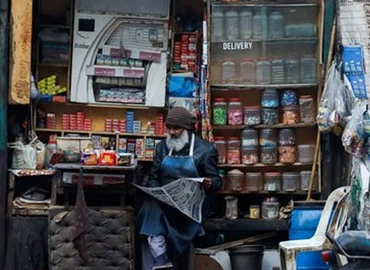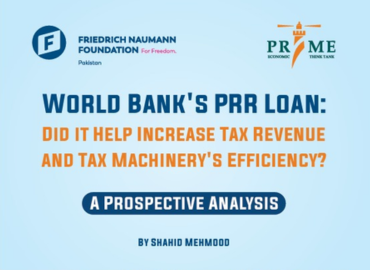Only a few businesses in Pakistan have attained regional and global recognition while managing to thrive in the long run. One such success story is Interloop, one of Pakistan’s largest publicly listed textile firms and now country’s largest exporter. This article draws on insights shared by its founder, Musadaq Zulqarnain, who highlighted the business environment and policy challenges in Pakistan and emphasized that fiscal discipline and a business strategy, not financial privilege, are required to run a business.
Challenges in the textile sector are well known: the lack of scalability, little value-addition in the products, and dependence on cotton-based products. Pakistan also struggles to compete with neighboring countries due to higher energy costs.
Musadaq proposed certain solutions to ensure the smooth operation of the textile and other industries in Pakistan. He believes in allowing free-floating capital flows which can significantly enhance economic efficiency by allocating resources to the most productive uses. It reduces distortions caused by government-imposed capital controls, enabling a more dynamic and competitive economy. When individuals and businesses have the freedom to invest their earnings without bureaucratic hurdles, capital can flow into sectors that promise higher returns and innovation.
For Pakistan, removing restrictions on capital flows could attract foreign investments, increase financial market participation, and integrate the economy into global value chains. However, robust regulatory frameworks are needed to mitigate capital flight risks and economic instability.
Pakistan’s reliance on imported raw materials for the textile industry has been often identified as a challenge. Producing these materials locally is theoretically a more sustainable solution. Still, according to Musadaq, high production costs of materials domestically often surpass the cost of imports due to outdated agricultural practices, low yields, and inefficient supply chains. The lack of modern infrastructure for processing raw materials increases costs, another factor contributing to the import of raw materials. For local production to replace imports, the final price of locally produced goods should be lower than that of imports, which is not currently the case. However, if the country’s unable to substitute the imports, it should utilize the imported raw materials efficiently.
Our entrepreneur believes that Pakistan should discourage wealth creation in static sectors. Pakistan’s real estate sector has often served as a haven for wealth storage rather than an engine of economic growth. The under-taxation of real estate encourages speculative investments, which inflate property prices without contributing significantly to productive economic activity. The government should implement progressive real estate taxes and introduce and enforce taxes on idle and speculative property holdings to redirect wealth into more dynamic sectors.
Commenting on the country’s youth bulge, Musadaq believes that Pakistan faces the paradox of many university graduates struggling to find employment. The root causes include a mismatch between educational outputs and market demands, outdated curricula, and insufficient emphasis on practical skills.
Finally, Musadaq identified key areas that can help Pakistan in terms of growth include promoting entrepreneurship in agro-tech to modernize the agriculture sector. Similarly, the importance of services and the IT sector cannot be emphasized enough, which requires relatively less cost to be established and maintained, unlike the manufacturing sector. Pakistan can thus expand the services sector by incentivising logistics, retail, and healthcare industries. Similarly, it should provide vocational training to enhance employability and increase investment in IT infrastructure and training programs to create a competitive edge. Capitalizing on Pakistan’s rich cultural and natural heritage by developing eco-tourism and adventure tourism while improving tourism infrastructure and safety standards can help flourish tourism in the country.
P
r
i
m
e
Close
Economic Lessons by an Entrepreneur
Download Resources
-

download fe
3789tiny.pdf
PDF Size: 7.85 KB Download





